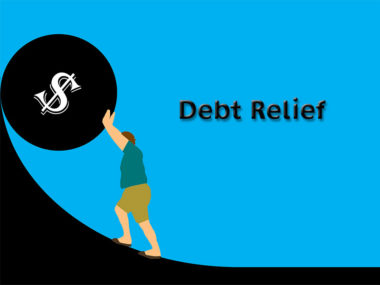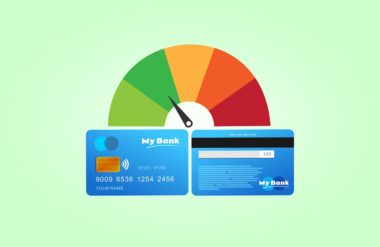Table of Contents
What Is Personal Finance?
Personal finance is how you manage your money individually or within your family unit. It includes creating a monthly budget, saving for retirement, estate planning, loans, and other personal financial decisions and processes you need to engage in during your life.
Personal finance is different than other types of finances because it focuses on allowing you to reach your financial goals and helping you develop a budget so you can stay financially stable and comfortable. It’s important to understand personal financial concepts and strategies and how they relate to your situation. By reviewing this complete guide to personal finance, you’ll learn the importance of making educated decisions about investments and financial protection to ensure you stay financially secure and reach your goals.
Major Elements of Personal Finance
When you’re building your own personalized financial plan, these are the specific elements you should analyze and take into consideration:
Identifying and Achieving Financial Goals
The first step to creating a solid approach to your personal finances is to identify your financial goals. While it’s important to begin saving money as soon as possible, you should also have financial goals set to motivate you to continue saving.
Your financial goals will guide how you set your budget and the ways you invest in your future. Everyone has different financial objectives and your personal financial goals should resonate with you and inspire you to stay on budget.
Budgeting
A personal budget allows you to track your household income and expenses each month. When you create a budget, you balance the income against the expenses to ensure you have money left over at the end of the month. Your budget should allow you to meet your family’s needs but also leave income for your future financial goals, such as retirement.
Investing
When you purchase assets because you expect them to provide you with a higher return, you’re investing. If you invest wisely, you’re able to reach your financial goals faster since wise investments help your money grow. You should take advantage of several different investment opportunities to build your investment portfolio, including:
- Real estate: You can invest in property to rent or sell for a higher price.
- Bonds: A bond is a fixed-income security sold by a corporation that allows its holders to earn interest.
- Stocks: A stock is a small share of a company that can be bought, sold, and traded.
- Mutual funds: Mutual funds are investments in securities, stocks, and bonds by a group of investors to earn profit over time.
Protection Against Risk
To protect yourself and your budget from financial disasters, you’ll need to invest in insurance and other protections against risk. There are many ways you can protect yourself and your personal finances from catastrophes, but the most important forms of insurance include:
- Health insurance: When you have a comprehensive health insurance policy, you don’t need to worry about medical debt if an unexpected expense arises.
- Life insurance: With life insurance, if you pass away, your family members are provided with a lump sum so they can continue living comfortably.
- Homeowner’s or renter’s insurance: This type of insurance protects your home and/or your belongings from natural disasters or other covered losses.
- Auto insurance: If you’re in an accident, your auto insurance coverage can help with car repairs and medical costs and can pay out for liability expenses if you were at fault.
Retirement and Estate Planning
Saving for retirement is an important piece of the puzzle within your financial plan. You should have various ways you save for retirement, some of which may include:
- Roth IRAs: With a Roth individual retirement account (IRA), you can contribute monthly and withdraw without paying taxes, as long as you wait until you’re 59.5 years old and have held the account for at least five years.
- 401(k)s: If your employer offers a 401(k), you can contribute a portion of your paycheck to it and the withdrawal you make in retirement isn’t subjected to federal income tax.
- Simple IRAs: If you work at a small business with less than 100 employees, a savings incentive match plan for employees (Simple) IRA may be administered by your employer, allowing you to contribute from your paycheck for a tax-free withdrawal in retirement.
Estate planning is also important because it helps you to legally document who will receive your assets if you pass away. By planning your estate, you can make your wishes clear and protect your family’s rights to your assets.
Taxation
When creating a financial plan, be aware of income taxes you may need to pay. Taxes are a percentage of the income you earned that must go to the federal government, more specifically, the Internal Revenue Service (IRS).
You can use tax strategies to maximize the tax breaks you qualify for in order to save money. Track your potential tax deductions (deductions in the income you’re taxed on) throughout the year. Save receipts and other documentation for tax credits (reductions in your taxes for certain expenses) throughout the year.
You must file a tax return at the end of the year claiming your income, the taxes you paid throughout the year already, and any credits or deductions you qualify for. Depending on your situation, you may owe taxes to the IRS or you may receive a tax refund.
Personal Finance Skills
To execute your financial plan, you must be diligent and possess certain qualities and skills.
Self-Discipline
You’ll need to have self-discipline to stay on track with your budget. It’s tempting to spend money as you make it, but following your budget and not allowing yourself to frivolously spend will allow you to reach your financial goals faster.
Planning Skills
Planning is a big part of reaching your financial goals and you’ll need to focus on both your short-term and long-term actions. For example, if you know you want to retire early at 55, you’ll need to adapt aggressive short-term money saving strategies that allow you to contribute to your retirement accounts regularly.
Critical Thinking Skills
Personal finance professionals and strategy guides are available to help you make the right decisions with your financial plan. However, you’ll also need to be able to analyze your personal situation and goals to weigh the pros and cons of different investment opportunities and decisions.
Patience
Having a healthy relationship with money and a realistic attitude about when you’ll see financial results is important in personal finance. When you approach investment strategies with an anxious attitude, you can make the wrong moves and cost yourself money.
Assertive Qualities
You must be able to say “no” to investments or loan terms you don’t like to protect your personal finances. Being assertive and shopping around for better deals or rejecting poor financial ventures is important for the wellbeing of your financial future.
Personal Finance Rules
There are specific hard and fast personal finance rules you should always follow to maintain financial responsibility.
Manage Your Debt
If you’re paying off your debt responsibly, it can be used to increase your credit score or to help you invest. However, keep your debt-to-income ratio low and don’t borrow more than you know you can handle so you can stick with your financial plan.
Track Your Accounts
Monitor your bank accounts to ensure you catch potential fraud as soon as possible. You should also keep a close watch on your accounts so you know when automatic payments are taken out. This way, you can make sure you have enough money to cover these payments.
Keep an Eye on Your Credit Score
If you ever need to take out a loan or make a big purchase, a good credit score is important. Monitor your score at all times to ensure you’re making positive changes and keeping it in good standing.
Keep an Emergency Fund
If you have an emergency but no emergency fund to cover it, you’ll blow your budget and make it harder to stay on your financial plan. Consider emergencies a part of your budget and keep extra money to cover the unexpected, such as a medical expense or car repair.
Budget for the Short Term
Short-term investing and budgeting is just as important as long-term. How you spend money daily, weekly, and monthly adds up to your overall ability to reach your financial goals and stay on track.
Budget for the Long-Term
Retirement or large purchases, such as a home, are long-term goals you plan for. Create strategies for each of these goals and implement them into your financial plan to ensure you’re making progress.
Personal finance is important, especially if there are specific financial goals you want to achieve, such as retirement or homeownership. By learning more about personal finance terms, skills, and strategies, you can create a financial plan that leads you to success.
Image Source: https://depositphotos.com/





